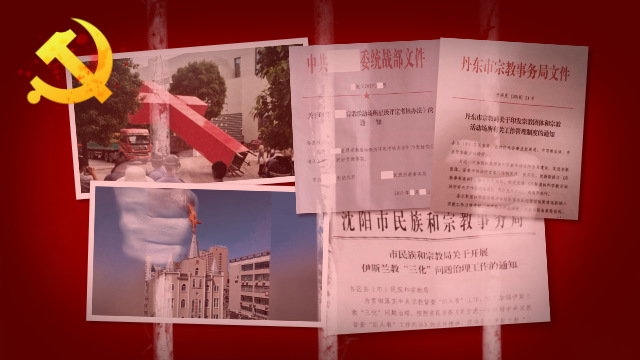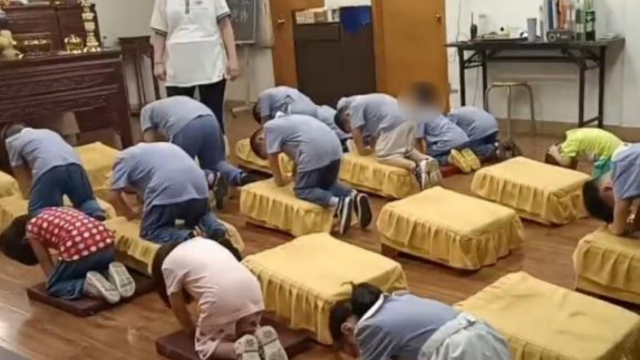The CCP treats any disclosed information about its actions to suppress people of faith as “the divulgence of state secrets” and cracks down on “leakers.”
by Han Sheng

After Bitter Winter reported about the removed cross from a Three-Self church in the southeastern province of Jiangxi, the local Religious Affairs Bureau launched an investigation to find the “leaker” and forced its director to sign a statement that he had removed the cross on his free will.
“Why would I want to remove the cross?” the church director asked angrily afterward. “Officials threatened to demolish my house if I refused. They are defying the laws by making me do that. Religious liberty in China is merely a show for foreigners.”
A Three-Self church director from the southeastern province of Fujian revealed that because of some government document published by Bitter Winter, a special team formed by the Ministry of Public Security investigated local churches and interrogated all persons who had access to the document.
“This document was distributed across the province, and it was not confidential,” the church director explained. “There was no leak of any state secrets, but the investigation was started, nevertheless. With the growing international criticism of China’s crackdowns on religion and violations of human rights, the communist government has become overly cautious and exceedingly worries about the stability of its regime.”
Similar investigations were also conducted in other provinces, as the police question clergy and congregation members suspected of divulging religious persecution information, looking for clues on their cellphones. During one such inquiry, officers claimed that the disclosure of incidents and documents related to religious persecution is equivalent to “divulging state secrets” and “colluding with foreign forces.” Those who do so are “spies” who will be given lengthy prison sentences.
Just months after Bitter Winter was launched in 2018, the CCP designated it an “overseas hostile website” for exposing religious persecution in China and subsequently hunted down and arrested our correspondents for “leaking state secrets.” Many remain in custody, deprived of visits from relatives and contacts with lawyers.
The CCP also enforces new stringent confidentiality measures in local governments by employing special staff to inspect and investigate religion-related matters. Hundreds of these religious work assistants in Henan Province’s Luoyang city were summoned for a meeting in October. They were demanded to keep the meeting’s content secret and had to hand in their cellphones for its entire duration to prevent them from recording speeches.
“The Church of Almighty God was indicated as the group that should be subjected to the most severe crackdown,” a conference participant told Bitter Winter. “The government wants to eliminate religions because of the dangers they may pose to its stability, but it doesn’t want facts of persecution to be known.”
The Chinese media also faces growing scrutiny on the information they publish. According to a journalist, who asked not to indicate the outlet or even the region he was from for fear of being accused of leaking information, the publication of regular government-issued documents is scrutinized more strictly now. “The scope of confidentiality is increasingly expanded,” the journalist said.
Educational institutions find themselves in a similar situation. “All new orders on the expansion of anti-religion measures in schools are now usually conveyed by word of mouth,” a middle school teacher from the northeastern province of Heilongjiang explained. “No materials in writing are given to us teachers. The government is afraid of leaving behind any evidence against it.”
Source: Bitter Winter












